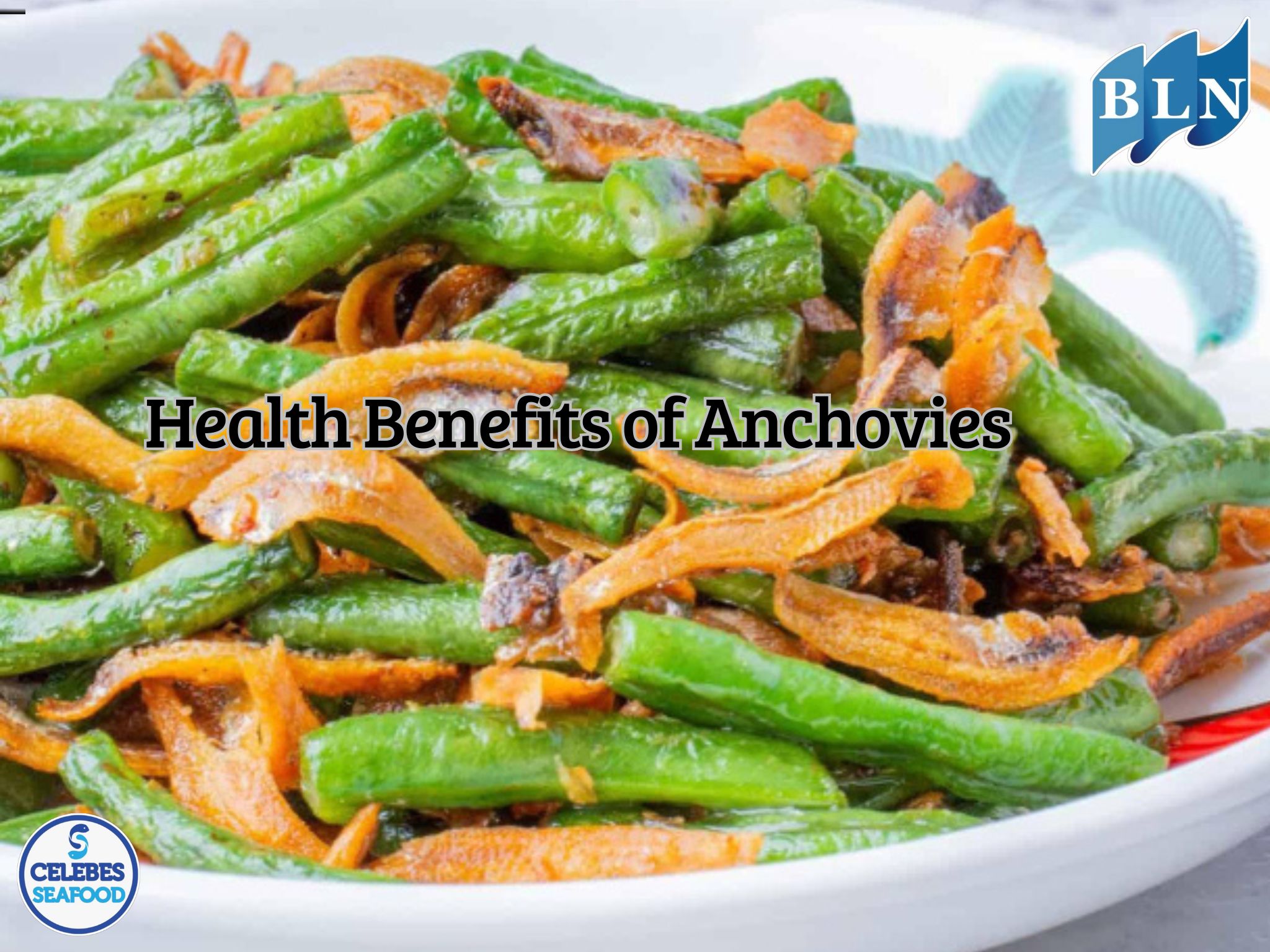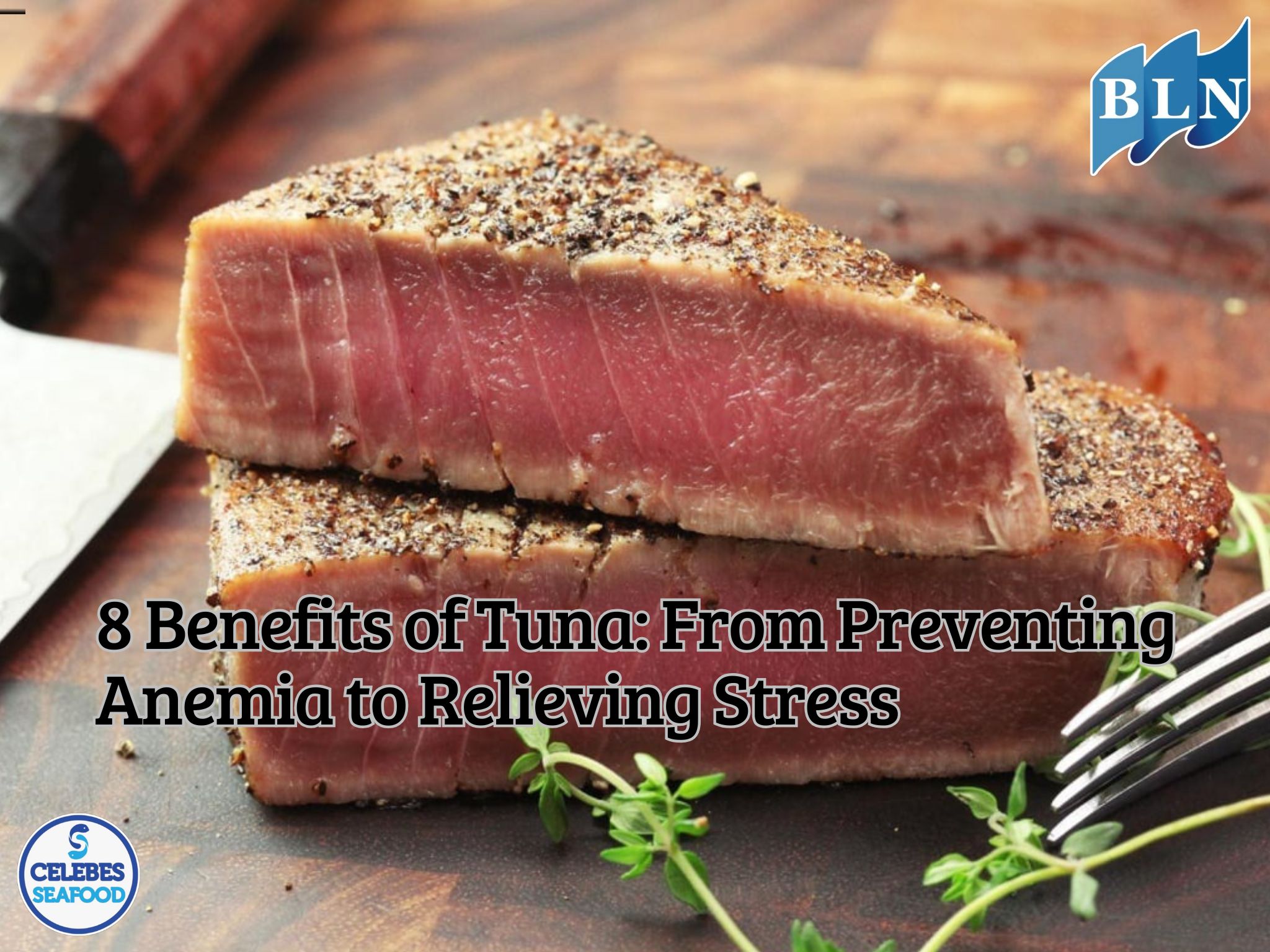Health Benefits of Anchovies
By. Tri - 28 Jul 2025
lautnuasntara.com Anchovies are a group of small, schooling marine fish belonging to the family Engraulidae. These fish are known for their small body size and savory taste, and are widely used in various food preparations, especially in Indonesia. Anchovies are classified as small pelagic fish and represent an abundant fishery resource.
1. Preventing Inflammation
Engraulis spp. (anchovies) belong to the category of oily fish, similar to salmon or tuna. This means anchovies contain omega-3 fatty acids. The fatty acids in anchovies consist of eicosapentaenoic acid (EPA) and docosahexaenoic acid (DHA), which are beneficial in preventing inflammation.
Inflammation is actually the body's response to fight infection. So, when your body senses a threat from foreign substances, your immune system will fight back, resulting in inflammation.
In the long term, chronic inflammation can increase the risk of various chronic diseases. To prevent inflammation, you can consume foods containing anti-inflammatory compounds, such as anchovies.
Besides anchovies, other omega-3 rich foods you can choose include tuna, salmon, and mackerel. The omega-3 fatty acids in these fish can slow down the production of substances released during the inflammatory response.
2. Maintaining Heart Health
Persistent inflammation can lead to heart disease. This is because inflammation can occur in any part of your body, including the blood vessels around the heart.
The omega-3 fatty acids from anchovies provide heart protection in several ways, including:
-
Maintaining a normal heart rhythm, thereby reducing the risk of sudden cardiac death.
-
Preventing blood platelet clumping, which often causes blood flow obstruction.
-
Lowering triglyceride levels by slowing down their formation rate in the liver. High triglyceride levels in the blood increase the risk of heart disease.
-
Preventing plaque formation in heart arteries and keeping the arterial lining smooth and free from thickening, hardening, or damage.
3. Supporting Bone Health
Every day, damaged bone cells are replaced by new, healthy bone cells. This bone formation process is rapid in children up to the age of 30. However, after that age, the new bone cell formation process slows down. This condition makes seniors susceptible to osteoporosis (bone thinning) or fractures.
To prevent these bone problems, you need to consume calcium-rich foods. It turns out that anchovies have a fairly high calcium content, which can benefit your bone health.
Calcium is not the only bone-healthy nutrient. Various minerals in anchovies also help protect bone health, such as phosphorus, iron, zinc, copper, and potassium.
4. Maintaining Nerve and Muscle Health
Anchovies contain sodium (salt). This nutrient in anchovies helps control blood pressure and volume. In addition, the body also needs sodium for muscles and nerves to function properly.
If your body's sodium levels are low, muscle and nerve function, as well as blood pressure, can be impaired. So, sodium is not entirely bad for your health, as long as your intake does not exceed the limit. If you have hypertension, make sure not to choose salted anchovies.
5. Maintaining Eye Health
Vitamin A is an antioxidant that plays a role in fighting free radicals, which often cause inflammation. The vitamin A in anchovies benefits eye health.
First, vitamin A helps form a photopigment called rhodopsin photoreceptor. This photopigment is found in the rod cells of the retina, helping you see at night. Therefore, vitamin A has the potential to prevent night blindness.
Second, vitamin A also improves the function of the conjunctiva and cornea. The conjunctiva is a thin layer that protects the white area of the eye and produces fluid to keep the cornea from drying out. Meanwhile, the cornea functions to refract (bend) and focus light entering the eye.
Safe Tips for Eating Anchovies
The benefits of anchovies are undeniable, and you can try various anchovy recipes for your daily menu.
However, if you consume salted anchovies, it's best not to overdo it, as it can be detrimental to your health. The high salt content can risk causing health problems, such as hypertension.
For people who already have high blood pressure, eating too much salty food can worsen their condition. According to the Harvard School of Public Health, frequent consumption of salty foods can also harm bones, as it can trigger bone thinning. So, make sure you don't over-consume salted fish.
Besides portion size, you also need to pay attention to how you prepare salted fish. Most people serve salted fish by frying it until dry. Although it becomes more savory, frying fish increases its fat and cholesterol content.
Therefore, it's better to serve salted fish by boiling or sautéing it with vegetables to make it richer in nutrients. You can also use healthier oils for frying fish, such as olive oil.
If you are interested in our GOAT FISH BUTTERFLY HEAD ON, GOAT FISH BUTTERFLY SKIN ON please do not hesitate to contact us through email and/or whatsapp.


.jpg)

.png)


